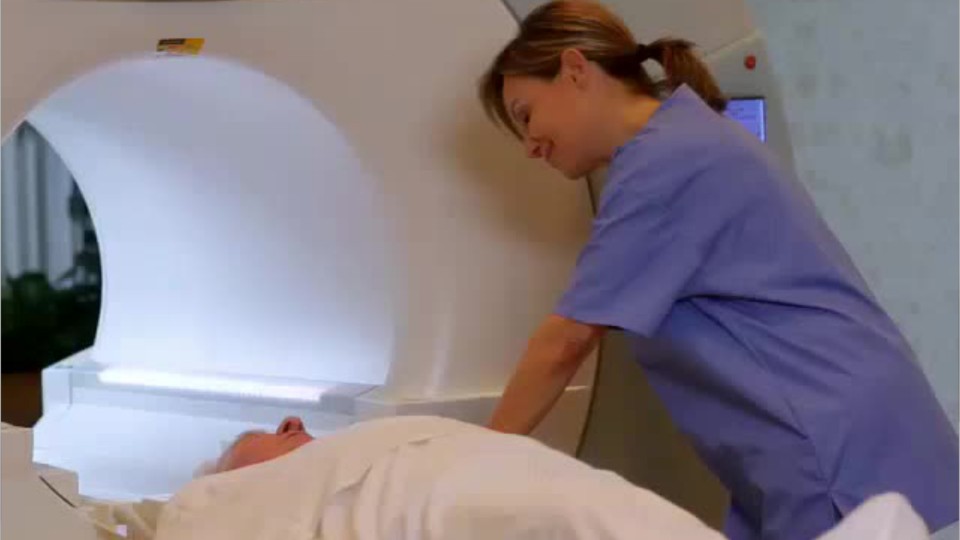Magnetic Resonance Imaging Technologists
MRI Coordinator (Magnetic Resonance Imaging Coordinator), MRI QA Coordinator (Magnetic Resonance Imaging Quality Assurance Coordinator), MRI Tech (Magnetic Resonance Imaging Technician), MRI Technologist (Magnetic Resonance Imaging Technologist)
What they do:
Operate Magnetic Resonance Imaging (MRI) scanners. Monitor patient safety and comfort, and view images of area being scanned to ensure quality of pictures. May administer gadolinium contrast dosage intravenously. May interview patient, explain MRI procedures, and position patient on examining table. May enter into the computer data such as patient history, anatomical area to be scanned, orientation specified, and position of entry.
On the job, you would:
- Review physicians' orders to confirm prescribed exams.
- Conduct screening interviews of patients to identify contraindications, such as ferrous objects, pregnancy, prosthetic heart valves, cardiac pacemakers, or tattoos.
- Select appropriate imaging techniques or coils to produce required images.
Knowledge
Business
- customer service
Arts and Humanities
- English language
Math and Science
- physics
- biology
Engineering and Technology
- computers and electronics
Skills
Basic Skills
- reading work related information
- keeping track of how well people and/or groups are doing in order to make improvements
Problem Solving
- noticing a problem and figuring out the best way to solve it
Abilities
Verbal
- communicate by speaking
- listen and understand what people say
Ideas and Logic
- notice when problems happen
- make general rules or come up with answers from lots of detailed information
Hand and Finger Use
- hold or move items with your hands
- keep your arm or hand steady
Personality
People interested in this work like activities that include practical, hands-on problems and solutions.
They do well at jobs that need:
- Empathy
- Cooperation
- Cautiousness
- Integrity
- Attention to Detail
- Dependability
Technology
You might use software like this on the job:
Medical software
- eClinicalWorks EHR software
- MEDITECH software
Spreadsheet software
- Microsoft Excel
Office suite software
- Microsoft Office software
Education
Education: (rated 3 of 5)
associate's degree or
certificate after high school
usually needed
certificate after high school
usually needed
Job Outlook
Bright
New job opportunities are very likely in the future.
Explore More
- Cardiovascular Technologists & Technicians
- Diagnostic Medical Sonographers
- Neurodiagnostic Technologists
- Nuclear Medicine Technologists
- Radiologic Technologists & Technicians
You might like a career in one of these industries:
See more details at O*NET OnLine about Magnetic Resonance Imaging Technologists.





